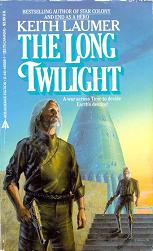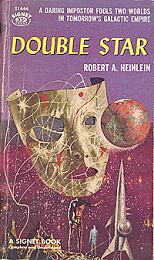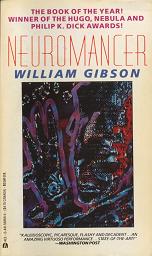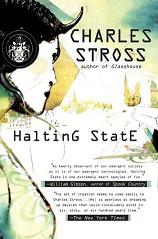
The Long Twilight
Keith Laumer
222 pages
published in 1969
Keith Laumer is one of the authors I devoured dozens of books from in my personal golden age of science fiction, first in Dutch translation, later in English. That’s because he had a knack for writing gripping, fun adventure stories that pushed all my sf buttons. Time travel, parallel worlds, supersecret superhuman agents who don’t know who they are themselves, that’s the stuff science fiction is made off when you’re twelve (and still is when you’re (at least nominally) an adult). His is a type of science fiction no longer being written, as it no longer seems to be commercially viable. Short novels you can read in less than two hours are no longer a good buy when the average paperback barely gets you change back from a tenner. No matter how much fun they are.
But fun Laumer’s books are, with The Long Twilight no exception. Laumer is at the height of his powers in this book, making this story about two feuding alien warriors stranded on Earth much better than it needed to be. Published in 1969, it came out only two years before Laumer would suffer a near-fatal stroke from which he would eventually recover enough to write again, but never again with the same skills. Which is a bit sad, because if not for that stroke, who knows what Laumer could’ve achieved…



